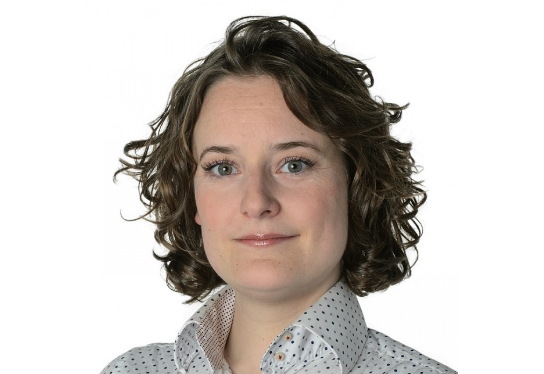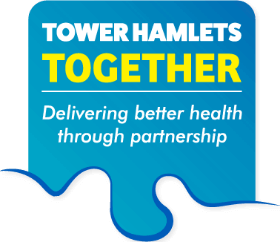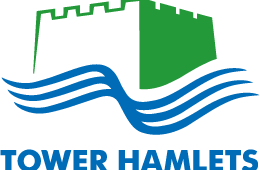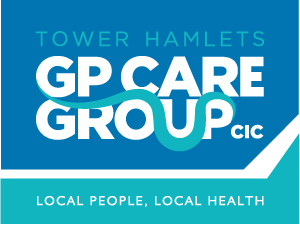Amy's Monthly Briefing - February - March 2022
The borough’s vision of a seamless health and care experience for its citizens.

My apologies for sending round such a delayed briefing on THT's February and March Board meetings, it has been a very busy period
My apologies for sending round such a delayed briefing on THT's February and March Board meetings. It has been a very busy period, made worse by me and my whole family catching Covid quite badly in the past fortnight. As well as formal Board meetings, in the past two months I've attended the Health and Wellbeing Board and two working group meetings to develop THT's anti-racism action plan. This will come back to the May Board for sign-off.
In February, we heard from Beatrix and Faiz - supported by Hannah from Real - about their experiences as disabled people during the pandemic. They described how younger, disabled adults were left out of the narrative, with shielding information focussed on older people and age bias meaning they were even challenged on getting their booster despite being clinically extremely vulnerable. As someone with a hidden disability, when attending A&E Hannah was told "you don't look disabled", left without carer support due to Covid restrictions on visitors, and not given any extra time to self-advocate. Faiz shared that when shielding as a wheelchair user "everything stopped" with no way for him to get to appointments and a major impact on his mental health. With everything moving online, he was unable to access e-consultation due to issues with his hands, but couldn't get a face to face appointment or even a video call with a GP.
Their strong message was "if you can articulate yourself, the perception is you're ok", so you don't get support and even face judgement or prejudice from healthcare professionals. Board members reflected on possible responses, including training led by young people to challenge professional bias, co-designing an alert system so the onus is not on patients to rehearse their stories over and over, and a commitment that carers should be an exception to Covid restrictions.
February's Board also heard the quarterly finance and performance reports. On finance, overspends continue to be driven by complexity of adult social care packages combined with inflationary and demographic increases, and by Covid pressures especially within acute care. Both Barts and ELFT flagged that next year is set to be even tougher. Board members discussed the need to be sighted on each partner's efficiency programmes to have a system-wide view of any risks and unintended consequences.
On performance, we noted the rise in social care packages linked to hospital discharges but the ongoing challenge with around 60 people (equivalent to two wards) each day who are "medically optimised" and should be elsewhere - which requires both increasing discharge numbers and decreasing the length of time between being medically optimised and actual discharge. Board members asked for future reports to include additional metrics e.g. initial health assessments for children in care, timeliness of education, health and care plans (EHCPs), quality of hospital discharge, and mental health, community and primary care.
In March, we had a spotlight on waiting times for elective care, where Healthwatch presented their community intelligence. Key themes were: waiting times of 52-78 weeks; disproportionate impact on people most at risk; telephone or online options not always being appropriate e.g. for people with sensory, learning or language needs; issues that predated Covid e.g. incorrect letters, difficulty contacting service; new issues e.g. receiving multiple appointments notifications and cancellations; feeling forgotten and increased anxiety as a result. Recommendations included improving communications and appointment processes, providing better support to people while they are waiting, and strengthening system-wide support e.g. pain management, occupational therapy or social prescribing.
We also heard from Mark, one of the Covid champions, about his experience of waiting for three different elective procedures, with no idea if it would take 6 or 18 months for these to happen. He shared other stories including someone with leukaemia not being seen for two years, someone needing four operations who has no idea of the likely timelines, and another person who had a back operation cancelled.
Barts reflected that long waits for elective care is their number one challenge, given there were two peaks of the pandemic where elective care was completely stopped. The week before lockdown they had cleared their 52 week waiters but now have 1000s of people in this situation. Infection control rules and restrictions have been a significant challenge and this is being addressed as a North East London problem. Trauma and cancer waiting targets are being met and the Royal London has an elective hub focussed on the most complex cases, a Waiting Well programme to provide interim support, and a tight grip from the CEO on any cancellations. Board members discussed what THT's practical response should be, including: improved system-wide communications to provide transparency and reassurance; stepping up a resource similar to the vaccination helpline with multilingual support; evolving the IAPT programme e.g. providing webinars to support people who are waiting; exploring options for alternative places to be seen and treated in the community.
The Board also approved the funding and approach for the new Locality Plan, a three-year programme to develop and implement our THT locality model bringing system partners, the voluntary sector and local people together within neighbourhoods. We warmly welcomed the proposal and reflected on the potential to embed a rights-based approach to health, a focus on children and young people, and a quality improvement methodology from the start. Finally, we heard an update on the Integrated Care Board, which will formally start in July with place-based partnerships in place from April. We reflected on the need to understand in more detail what will sit where in the new governance arrangements - in terms of budgets, decision-making and responsibility - and how place-based partnerships and provider alliances will work together. This will be a focus for the April Board.








